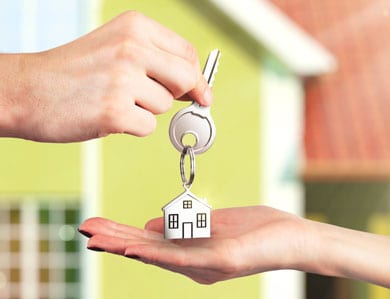 Unless you have been living under a rock for the past five years, you know that our economy and real estate market have been tumultuous in recent times. It seems that every state has its own story about the current real estate market, and while this article will focus mainly on South Florida, you may be interested to know that we all share a similar nemesis in the real estate market. This common enemy comes in the form of well-established hedge and private equity funds that leave little or no inventory for standard buyers in search of a good deal on a purchase and/or investment. Whether it’s a foreclosure or short sale situation, you will almost always find deep-pocketed investors flying their stealths low to the ground and hovering over a market that would otherwise be fair game for interested buyers.
Unless you have been living under a rock for the past five years, you know that our economy and real estate market have been tumultuous in recent times. It seems that every state has its own story about the current real estate market, and while this article will focus mainly on South Florida, you may be interested to know that we all share a similar nemesis in the real estate market. This common enemy comes in the form of well-established hedge and private equity funds that leave little or no inventory for standard buyers in search of a good deal on a purchase and/or investment. Whether it’s a foreclosure or short sale situation, you will almost always find deep-pocketed investors flying their stealths low to the ground and hovering over a market that would otherwise be fair game for interested buyers.
The next big thing
The business of buying foreclosed homes to renovate and turn into rentals is morphing from a largely mom and pop business into the next big thing on Wall Street. In short, the arrival of private equity and hedge funds on a national scale are crippling a market that was once thriving for smaller investors. Blackstone, the Wall Street behemoth, has spent more than $2.5 billion on 16,000 homes to manage as rentals, deploying capital from the $13.3 billion fund it raised last year according to Jonathon Gray, global head of real estate for the world’s largest private equity firm. That’s up from $1 billion of homes owned in October, when Blackstone chairman Stephen Schwarzman said the company was spending $100 million a week on houses.
Blackstone is the largest investor in single family homes to manage as rentals, acquiring properties in nine markets from Miami to Phoenix, where prices surged 22 percent in the 12 months through October. The firm, along with several other corporations, is seeking to transform a market dominated by smaller investors into a new institutional asset class that JPMorgan Chase & Co. estimates could be worth as much as $1.5 trillion.
Show me the money
In South Florida, Sun Sentinel’s Paul Owners declares that 69 percent of all home sales last month were cash deals. Across the state 66, percent of home sales were cash, compared with the national rate of 40 percent. One expert called Florida’s rate “astounding.”
South Florida rates as one of the nation’s highest foreclosure states, and has a vast supply of bank-owned properties. The lending community got themselves into quite a dither during the easy lending era that preceded the 2007-2009 recession, when they were qualifying borrowers to purchase loans that were way beyond their means. Consequently, the love affair between the banks and the traditional buyer has come to a screaming halt with the banks now having an urgent need to get those loans off their books as soon as possible. Banks are now willing to sell for less to cash buyers as opposed to waiting for a qualified buyer to finance. Unfortunately, this scenario has virtually shut out entry-level home buyers.
Can you say Fannie Mae?
Okay, I’ve hit you with the bleak facts and by now you probably get the picture. Cash vs. mortgage…no win situation. So where do you go from here?
There is something called a HomePath Mortgage that allows a buyer to purchase a Fannie-Mae owned property with a low down payment, no mortgage insurance, and wherein expanded seller contributions towards closing costs are permitted. The property can require light to moderate renovating, while the loan amount includes funds for both the purchase and the renovation. Should this interest you, have your realtor search the MLS (multiple listing system) for HomePath properties…they’re out there! Also, if you are seeking to buy and live in your purchased home, Fannie Mae will give you a 15 day jump start on making an offer on a HomePath property, while a cash investor looking to flip the house, must honor the 15 day wait period.
This, of course, is not your only option; there are still FSBO (for sale by owner) properties, and other ways to pursue your dream home, but interest rates are on the rise and the average 30- year mortgage rate is now around 4 percent, which is up from 3.25 percent just a few months ago.
In closing
Truth be told, inventory is low due to the extreme interest in foreclosed properties, banks drooling at any opportunity to get rid of them, and greedy investors rising to the call. But, with prayer, patience and a good financial strategy that honors godly principles, you will find your Florida property. Hiring a competent realtor is highly recommended and being honest with yourself about what is affordable will always work in your favor. If you end up becoming highly frustrated in the process, which is not unlikely, remember Matthew’s account in 8:20 that reads, “And Jesus said to him, the foxes have holes and the birds of the air have nests; but the son of man has nowhere to lay his head.”

Comments